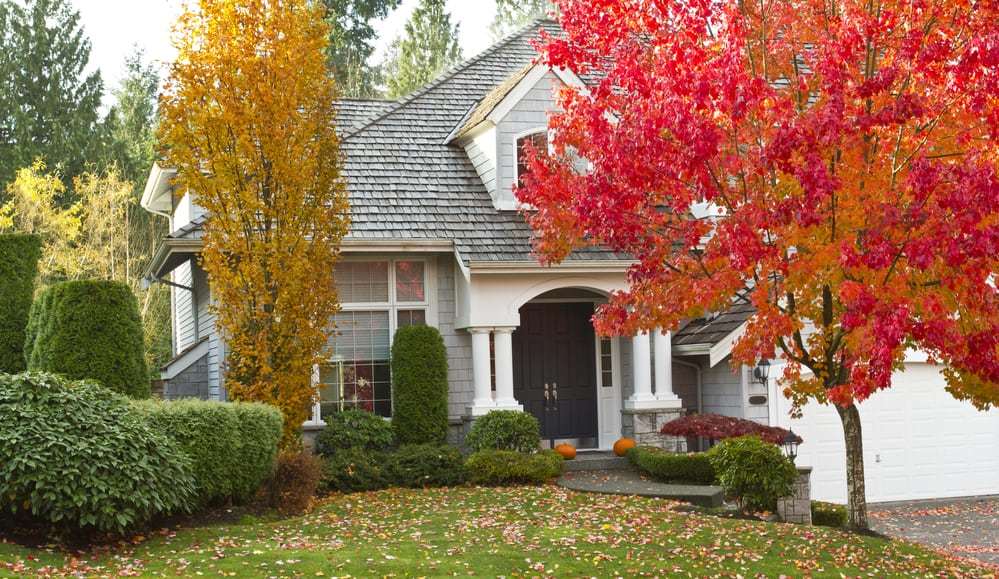With any investment, one way to soften the blow to your checking account is to consider how long the item will last. Since a home is a huge purchase that should last for decades, you’ll want to protect it with a high-quality roof. But then you might start to wonder, “How long should a roof last?” The answer will vary depending on where you live and how well you maintain your roof. In areas that experience all four seasons, like southwest Missouri, a typical asphalt roof should last anywhere from 18 to 22 years, barring any severe weather activity.

How Long Should a Roof Last in Missouri?
Anything left outside for extended periods of time will experience wear and tear, and roofs are no exception. Heat, humidity, hail storms, wind storms, thunderstorms, intense rain, algae, moss, mold, and inadequate roof ventilation and insulation all work against your roof and shorten its lifespan.
Factors That Shorten a Roof’s Lifespan
- Material: The primary factor influencing your roof’s lifespan is its material. Although we’re focusing on asphalt shingles in this post, there are a variety of roofing options available, including metal, slate, wood, laminate, and ceramic tiles. If you’re replacing your roof, consider the longevity of your material options.
- Climate: Each climate affects roofs in a different way. For example, if you live in an area that experiences intense humidity and tropical storms like the southern coasts of America, your roof may have a shorter lifespan. Those who live on the northern coasts of America should know that heavier snow storms mean a higher risk for leaks and ice dams. As you contemplate the lifespan of your roof, keep your area’s climate in mind, including the temperature range, humidity, and propensity for natural disasters.
- Sun Exposure: You might love sunbathing, but it’s important to remember that your roof does not. Heat will wear down your roof. If you’re located in a hot and sunny climate, especially if you’re also at a high altitude, your roof will have a shortened lifespan due to its sun exposure. However, when roofs don’t receive any sunlight, they may also suffer a shortened lifespan because dark, moist areas are breeding grounds for mold, mildew, algae, and moss.
- Roof Pitch: The pitch is the slope or angle of the roof, i.e., the steepness of its incline. Higher pitched roofs tend to last longer because they help precipitation run off the roof, preventing damming, seepage, and other moisture issues.
- Insulation and Ventilation: Without efficient insulation and ventilation, warm and moist air will build up beneath your roof. This can lead to rot or the growth of mold, mildew, algae, or moss, which can cause your shingles to deteriorate. In addition, since hot air rises, it can cause the top of your roof to be warmer, and the eaves of your roof to be colder. The imbalance can cause some shingles to wear before others. Work with a professional roofing company to make sure you have an adequate amount of intake and exhaust vents.
- Negligence: If you don’t take care of your roof, you can’t expect it to last for decades. Schedule regular inspections, cleanings, and (when necessary) repairs to keep your roof in good condition.
Trust GlennStone for Expert Installation and Maintenance
Here in southwest Missouri, with proper installation and care, we generally see roofs last for around 18 to 22 years. Keep in mind that variables such as extreme temperature changes, wind storms, hail storms, rain intensity, humidity, ventilation, and insulation can all affect how long your roof will last.
If you need assistance installing a new roof, maintaining or repairing your roof or you’re planning to replace your current roof, contact GlennStone if you live in southwest Missouri. You can also send an e-mail to info@GlennStone.net, call 417-860-8125, or contact us online. Proper attic ventilation is crucial to maintaining the integrity of your roof, and we will help you choose the best ventilation system for your house’s needs.
